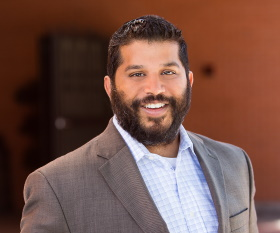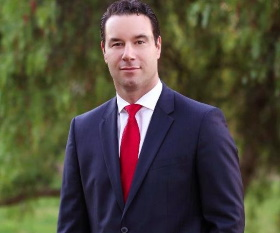In a recent three-part blog article, Chris Evans discussed the moratorium on evictions and current rental obligations from a state, local, and judicial level. The blog article revealed that, among other things, San Diego tenants are protected from eviction until June 30, 2020. The article further clarified that landlords cannot initiate an unlawful detainer action until 90 days after Governor Newsom lifts the State of Emergency Declaration. These governmental actions have certainly provided some welcomed breathing room for tenants that have felt the immediate economic impacts of COVID-19 on their lease.
However, it is uncertain how much longer these orders will stay in place. As Governor Newsom recently announced, Californians have “arguably” flattened the curve, and we are in phase two of the State’s four-phase reopening plan. Additionally, San Diego County has begun permitting certain restaurants, retail businesses, and other parts of the economy to reopen. Given these new developments, commercial and residential tenants alike need to start questioning how they will protect their tenancy once the government lifts these tenant-friendly orders.
If commercial and residential tenants envision themselves on the losing side of an unlawful detainer action in the foreseeable future, they should look towards Sections 1179 and 3275 of the California Civil Code. Both statutes provide the court with broad authority to grant the tenant with “relief from forfeiture” of the lease agreement and reinstate the tenant to its former tenancy—even after the court has terminated the lease and issued a judgment in favor of the plaintiff-landlord. Indeed, tenants use both statutes as a “last hope” to save their tenancy. This article will discuss both statues in-depth and how tenants can utilize these statues in state and bankruptcy courts in a post COVID-19 world.
What Does “Forfeiture” Mean & When is a Lease Forfeited?
The term “forfeiture” simply means that the lease agreement is terminated, and the tenant has no further rights, obligations, or privileges under the contract. If the lease is “forfeited,” the tenant loses the benefits it expected to receive under the lease agreement, such as options to renew or extend its tenancy or its security deposit. A tenant forfeits a lease agreement in two ways.
First, the landlord declares a forfeiture of the lease agreement when the following four requirements have been satisfied:
- The tenant breached the lease;
- The landlord properly served the tenant with a notice to cure the breach within a reasonable time (i.e., a three-day notice to pay or quit);
- The notice contains a provision that allows the landlord to declare a forfeiture of the lease if the tenant does not cure the breach; and
- The tenant failed to cure the breach within the time permitted.[1]
Second, the lease agreement contains a clause that allows the landlord to declare a forfeiture if the other party breaches a covenant or condition of the contract. The landlord must show that the tenant’s breach was a “material breach” that affected the landlord. An unharmful or de minimis violation will not suffice.
For example, in Boston, LLC v. Juarez, the landlord was permitted to declare a forfeiture of the lease if the tenant violated any portion of the lease agreement. The court held that the tenant’s failure to obtain renter’s insurance, as required under the lease, did not amount to a “material breach” of the agreement. The court found that the condition to obtain renter’s insurance benefited the tenant, and its breach of this provision did not harm or impair the landlord’s rights under the lease agreement. As such, the landlord was estopped from declaring a forfeiture.[2]
A more common material breach is sub-leasing the property when the lease forbids sub-leasing or failing to pay rent. It is essential for tenants, primarily commercial tenants and landlords, to review their lease agreement to determine whether the contract contains a forfeiture clause.
Section 1179 of the Cal. Civ. Code
Section 1179 allows the court to grant “relief from forfeiture” if the tenant: (1) pays all past rent owed or cures its breach of the lease covenants; and (2) convinces the court that it will suffer a “hardship” if it is not restored to its prior tenancy.[1] Commercial and residential tenants often struggle to satisfy the second requirement, as courts find “hardship” in rare circumstances.
To determine whether granting relief is fair to both parties, courts engage in a three-factor test. The three factors are: (1) the nature and character of the tenant’s breach; (2) hardship of the parties if relief from forfeiture is/is not granted, and (3) whether the parties have acted in good and/or bad faith towards each other.[4] The three-factor test is certainly an extra hurdle that tenants must overcome when seeking relief. Nevertheless, courts have continuously granted relief from forfeiture when the circumstances are so dire that it would be unjust not to restore the tenant to their former tenancy.
For instance, in Hamid v. Janakus, the tenant, an 89-year-old man, fractured his hip and was placed in a nursing home for a month. The elderly tenant forgot to pay his rent while rehabbing his injury and did not have any family or friends to monitor his financial affairs. Moreover, the tenant resided at the property for over 35 years, and the property was under the city’s rent control laws.
The tenant argued that he would suffer undue hardship if he were required to move because he would be unable to find a residence at the same rental rate. The tenant further claimed that due to his poor health, it was nearly impossible for him to relocate to a new home. The court found the tenant’s argument convincing and granted the tenant relief from forfeiture, but on a conditional basis. Before retaking possession of the property, the tenant was required to pay all past rent owed and reimburse the landlord for his attorney fees.[5]
The holding in Hamid v. Janakus illustrates the classic “hardship” scenario where the tenant’s circumstances are so rare that relief from forfeiture is necessary to protect the tenant’s well-being. Fortunately, not every tenant has to make such a drastic showing to obtain relief under Section 1179. Courts will grant relief from forfeiture if the tenant has invested a substantial amount of money into the property and would lose their entire investment if evicted from the premises.
In Assi Super, Inc. v. Eight Oxfords Property Management, Inc., the tenant had invested over $1.8 million in upgrades to the property and recently signed a second loan to make further improvements to the property. The tenant secured the second loan with his residence. To make matters worse, the tenant had over 30 sub-lease agreements with small business owners that operated their business in a commercial unit within the property. Most of the small business owners resided in the U.S. under “Business Investment Visas” and were at risk of being deported if the lease was forfeited.
Given these unique circumstances, the court granted the tenant’s motion to be relieved from forfeiture. Had the court not granted relief, the tenant would have lost its entire $1.8 million investment in the property, and a majority of the sub-tenants would have been deported. Similar to the order in Hamid v. Janakus, the court granted relief from forfeiture on a conditional basis. Before the tenant could retake possession of the property, it was required to cure its breach and reimburse the landlord for its attorney fees and costs.[6]
The cases cited above provide commercial and residential tenants with two points to consider. First jand foremost, the examples show that courts will grant relief from forfeiture to protect the tenant’s overall well-being or prior investments. It is also clear that courts will consider the impact on third parties if relief from forfeiture is not granted. In Assi Super, Inc., the court’s ruling was based in part on the effects a forfeiture of the lease would have on the tenant’s sub-tenants.
Second, California courts have regularly granted relief from forfeiture on the condition that the tenant must reimburse the landlord for its attorney fees and court costs. Courts believe it is unfair to reinstate the tenant to their prior tenancy and leave the landlord without a remedy against the breaching tenant. In the court’s view, if the tenant is restored to their former tenancy, then, at the least, the landlord should be restored to its original financial position had the tenant not breached the lease agreement.
Seeking Relief Under Cal. Civ. Code § 3275
Section 3275 provides tenants with another path to seek relief from forfeiture of a lease agreement. Section 3275 serves the same overall purpose as Section 1179, however, there are two critical differences between the two statutes.
The most significant distinction is that Section 3275 applies to all types of contracts, whereas Section 1179 applies to strictly commercial and residential leases only.[7] As such, a contracting party can utilize Section 3275 in any contractual dispute where forfeiture is at issue. The other key difference is that Section 3275 requires the party to prove that their breach of the contract (or lease) was not “grossly negligent, willful, or fraudulent.”[8] A party seeking relief under Section 3275 must, in addition, show that it has satisfied the two requirements of Section 1179.[9]
Last, contracting parties can effectively waive both statutes in any given contract or lease agreement. The bankruptcy court in In re Art & Architecture Books of the 21st Century held that no California statute prohibits a party from waiving its right to relief from forfeiture under Sections 1179 and 3275. The court stated that parties to a “lease should generally be free to contract with each other upon such terms as they agree,” as long as the terms do not contravene public policy. In this case, the court found the right to seek relief from forfeiture benefited the party that waived such right and, thus, did not violate the court’s public policy concerns.[10]
Given this ruling, landlords and tenants must exercise diligence when drafting and reviewing a contract or lease agreement. Landlords that wish to include the waiver provision must add specific and unambiguous language that clearly states the tenant is voluntarily waiving its statutory rights under Sections 1179 and 3275. On the other hand, tenants must carefully review their residential or commercial lease agreements to ensure that the contract does not contain such a waiver.
Overall, Section 3275 provides the same relief as the previously discussed Section 1179. The critical difference is that Section 3275 requires the requesting party to prove that their breach was not “grossly negligent, willful, or fraudulent.” At first glance, this additional hurdle seems to act as an impediment for tenants (and contracting parties) seeking relief under Section 3275. However, no court has directly ruled on whether a tenant that breached its lease agreement for no fault of its own, did so willfully or with gross negligence. Given this uncertainty, wise real estate litigators seek relief from forfeiture by employing both Sections of 1179 and 3275. Bringing the motion on both grounds allows the court to grant relief under either section of the code.
Applying Sections 1179 and 3275 in Bankruptcy Court
Sections 1179 and 3275 are not strictly reserved for California State Courts and are applicable in a bankruptcy proceeding.[11] Section 365 of the Bankruptcy Code allows the Trustee to assume a residential or commercial lease of the debtor, as long as the lease did not terminate before the bankruptcy petition was filed. However, most debtor-tenants that file a bankruptcy petition do so after the termination of the lease agreement, which prevents the Trustee from assuming (and saving) the lease under Section 365.
Fortunately, the landmark case of In Re Windmill Farms addressed this deficiency.[12]In that case, the court held that if a two-factor test is satisfied, the bankruptcy court can grant relief from forfeiture under Sections 1179 or 3275 and reinstate the lease. If the bankruptcy court reinstates the lease, the Trustee can then assume the lease under Section 365 of the Bankruptcy Code, as the lease is no longer terminated. The holding in In Re Windmill Farms bridges the gap between the strict language of Section 365 and California’s anti-forfeiture statutes, allowing tenants to save their lease through a bankruptcy proceeding.
The first factor is determining when the lease agreement was terminated. If the lease was terminated before the bankruptcy petition was filed, then the debtor will have to proceed to the second factor. On the other hand, if the lease was terminated after the bankruptcy petition was filed, the Trustee can assume the lease under Section 365, provided the Trustee promptly cures the debtor-tenant’s default.
The second factor is applying Sections 1179 and 3275 and the case law that flows from those statutes to the case at hand. If the court determines that relief is proper, then the debtor-tenant must cure its default before retaking possession of the property. If the two factors are satisfied, then the lease is reinstated, and the Trustee may assume (and save) the lease under Section 365 of the Bankruptcy Code.
Finally, debtor-tenants and their counsel must be familiar with the basics of lease assumption in a bankruptcy proceeding. If the debtor wants to retain the lease, the debtor will move to assume it, and must do so within 120 days of filing the bankruptcy petition. The court can extend this time period without the landlord’s consent for 90 additional days, making a total of 210 days, but any further extensions require the landlord’s prior written consent.[13] If the lease is not assumed (or assumed and assigned) within this period, the lease automatically will be deemed rejected and the debtor-tenant will have to vacate the property.[14]
In order to assume the lease, the debtor must cure any defaults or provide assurance that it will promptly do so.[15] This is at least true with respect to monetary defaults. There is a split in the case law as to whether non-monetary defaults must be cured in order to assume a lease (or other executory contracts). The debtor-tenant must also compensate the landlord for “any actual pecuniary loss” resulting from the debtor’s breach.[16] And the debtor must “provide adequate assurance of future performance.”[17]
Any tenant that files a bankruptcy petition must understand that Sections 1179 and 3275 can save their tenancy in a bankruptcy proceeding. This is especially true during this time, as many small and large businesses seek bankruptcy protection.
Seeking Relief from Forfeiture in a Post COVID-19 World
The economic effects of COVID-19 have left one in every four San Diego residents unemployed and forced notable businesses to either wind up their operations or file for bankruptcy protection. These drastic results certainly provide a basis for commercial and residential tenants to seek relief from forfeiture under Sections 1179 and 3275, whether in state or bankruptcy courts. The only hurdle for tenants is showing the “hardship” they will suffer from if relief from forfeiture is not granted.
As mentioned above, hardship can be shown by the rental rate one currently pays compared to the market values, the past investments one has made into the property, or the effects forfeiture will have on third parties, such as employees. Given the uncertain economic times, along with the unique facts of each case, courts will undoubtedly broaden its definition of “hardship” and grant relief from forfeiture when necessary.
If you find that you are on the brink of eviction or may be served with an unlawful detainer action in the near future, contact a California attorney immediately.
[1] Cal. Civ. Code § 1174 (a)
[2] Bos. LLC v. Juarez, 245 Cal.App.4th 75, 82 (2016)
[3] Cal. Civ. Code § 1179
[4] See Thrifty Oil Co. v. Batarse, 174 Cal.App.3d 770, 777 (1985) See also Hignell v. Gebala, 90 Cal. App. 2d 61, 71 (1949)
[5] Hamid v. Janakus, No. BV 024000, 2003 WL 26128877, at *3 (Cal. App. Dep’t Super. Ct. May 13, 2003)
[6] See Assi Super, Inc. vs. Eight Oxfords Property Management, Inc., No. Bc319425, 2006 WL 4749574
[7] Cal. Civ. Code § 3275; see also Hignell v. Gebala, 90 Cal. App. 2d 61, 70 (1949) (holding that “section [1179] is special in its nature, applying only to unlawful detainer proceedings, while section 3275 is general”).
[8] Cal. Civ. Code § 3275
[9] Cal. Civ. Code § 3275; see also Am. Bankers Mortg. Corp. v. Fed. Home Loan Mortg. Corp., 75 F.3d 1401, 1413 (9th Cir. 1996) (finding that the requesting party must “must plead and prove facts entitling it to relief under the section [3275]”)
[10] In re Art & Architecture Books of the 21st Century, 518 BR 43 (Bankr. C.D. Cal. 2014)
[11] In re Burke, 76 F. Supp. 5, 8 (S.D. Cal. 1948) (“[t]he proposition that Section 1179, Cal. C.C.P., is applicable in and by the Bankruptcy Courts is so plain, that the point need not be further labored.”)
[12] In re Windmill Farms, Inc., 841 F.2d 1467, 1472 (9th Cir. 1988)
[13] 11 U.S.C. § 365 (d)(4)(A)
[14] Id.
[15] 11 U.S.C. § 365 (b)(1)(A-C)
[16] Id.
[17] Id.














